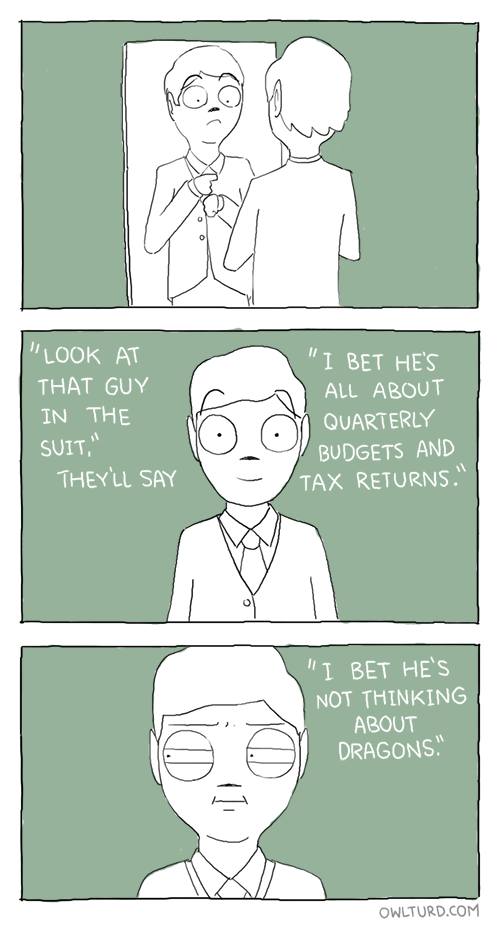When it comes to matters of the heart (relationships, religion, anything that can't be proven), it's incredibly hard to change someone's mind. Once you're set, you're set. Nothing anyone else can say will change that. What these types of blogs are asking of their intended audience is something that the writers themselves aren't willing to do. So there are really two problems with this. First, it's a post intended for an audience that, for the most part, does not make it a habit of reading those types of blogs. Secondly, it's asking the impossible.
Marketing has a general rule that you sell to the swing group through the eyes of the love group. The rule totally ignores the hate group. Why? Cause the hate group isn't going to change. What you're doing when you try to win back some one who has "fallen away" from whatever it is through reason and facts is trying to change the minds of the hate group. If anything, it's going to push the hate group farther away because they'll most likely feel attacked.
When religion is involved, which it is for 95 percent of the blogs I'm talking about, sometimes it's hard to distinguish between the swing and the hate group. However, a plea to stay won't usually work for either. At least, not the pleas I've seen. I've only ever seen two things work with religious swing groups.
- The facts. Some people, especially those like me, respond best to the facts of an issue. They lean towards one side because the arguments made by that side are easier to understand and make at least a little sense. They can lean to either side based on the answers to their questions, eventually joining with one group or the other. This is why you need to know your religion. While facts may change from religion to religion, you must be able to share what you believe in an understandable manner. I strongly believe that this means you have to ask questions yourself. Ask questions, hard questions, and seek out the answers. Once you've done this you'll be able to give better answers to those who are asking.
- The love. Sometimes people just need to be shown a little love. Not told, shown. This is the most important way to help those struggling to understand. Lovingly answer questions. Don't make it seem like asking questions is wrong. There are never any stupid questions. Don't judge. If someone says "You're just going to say that I don't understand" don't say it. Even if that person has the facts wrong, don't say it. It won't help. Just love them. Because people should be loved.
 |
| Brii and Erica were two of the people that helped me feel the love. |
I can witness that a combination of facts and love can do wonders for a person. I was once in the swing group. Yes, I was young, but I was old enough to ask questions and find and understand the answers. It was when I was moving from Primary to Young Women's. I was the oldest in my age group and there were a few years between me and the next youngest girl. It just so happened that the time I started searching for the truth was also the time when I felt the most alone. I couldn't seem to make friends with the older girls. In fact, it felt like the older girls didn't care at all that I was always by myself. It got to the point where I dreaded going to church. The answers I was finding to my questions didn't matter. I knew the answers were good, and that I should be leaning towards the love group, but I wasn't. I was constantly telling my parents that I was too sick to go to church activities and I remember fake sleeping until the rest of my family left for church on several occasions. Then Erica graduated into Young Women's. I had a friend again and I could suddenly feel the love of my leaders. That was what got me to stay. I had the facts, I knew them to be true, but without the love I never would have stayed because I didn't feel wanted before then.
When anyone, an individual or a group, is threatening to leave, don't talk them to death. Don't answer the questions they haven't asked. You can't read their minds. Yes, your heart is in the right place, but that's not what is needed. A blog post gone viral isn't what is needed. Love is needed. Understanding is needed. The time to talk is done. The time to love has reached its most critical point.




